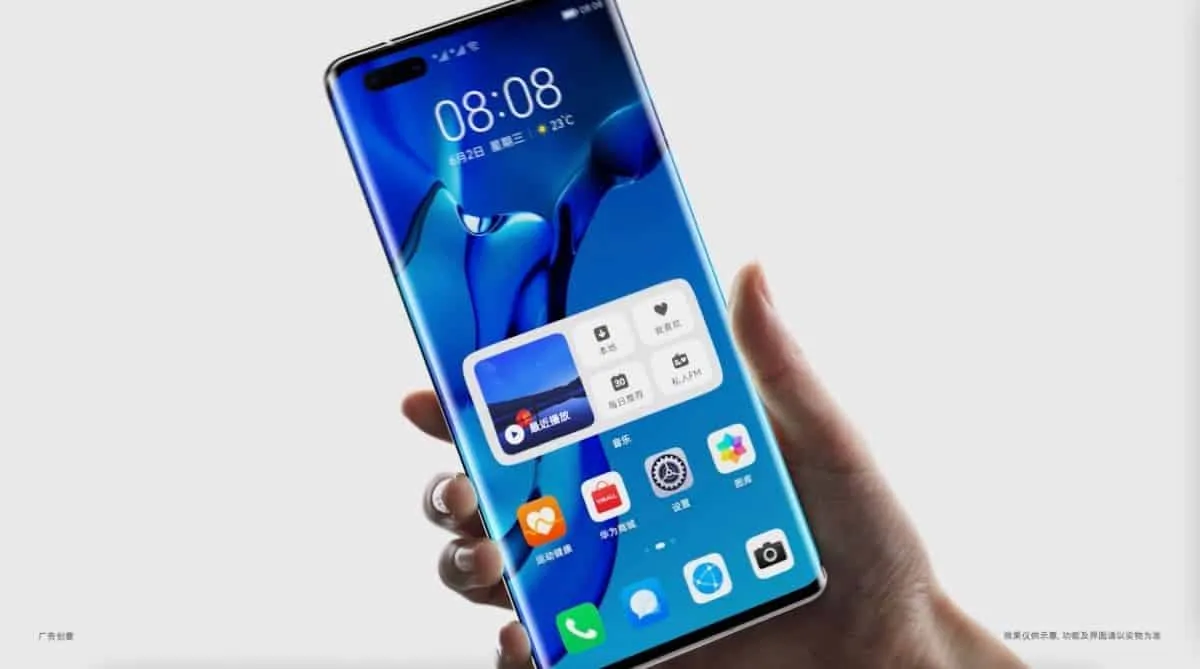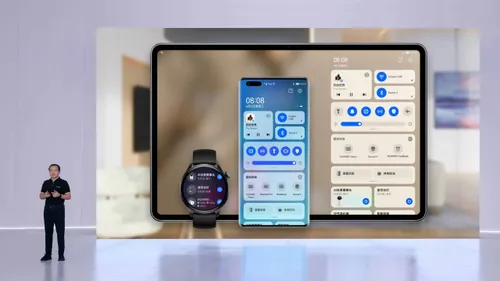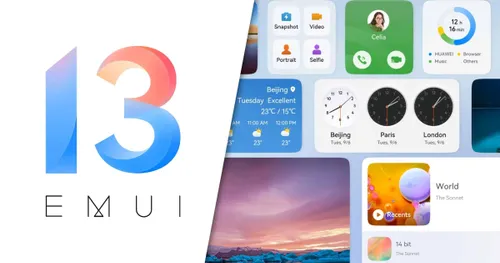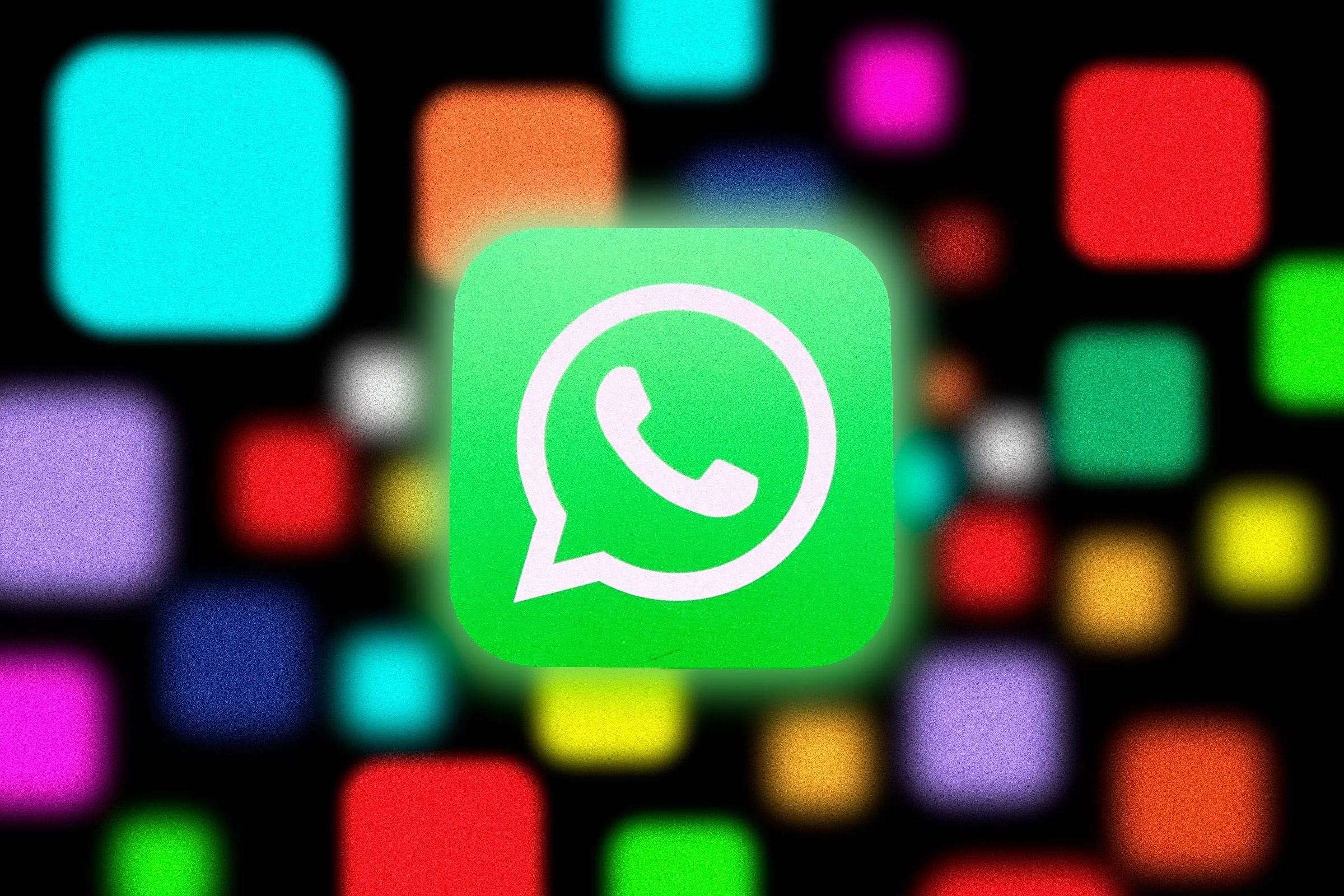How Huawei Plans to Keep Android App Support for Global users
HuaweiTuesday, 21 November 2023 at 06:02

Huawei recently introduced the next version of HarmonyOS, signaling a significant shift by excluding support for APK files, the native Android apps. This move, disclosed by Richard Yu, the CEO of Huawei, has left Huawei device owners worldwide perplexed about the impending changes.
A week after the initial announcement, Huawei issued a clarification stating that the new OS would not be extended to overseas units. Instead, mobile phones and tablets beyond China will continue operating on EMUI. It's a HarmonyOS lookalike rooted in the Android Open Source Project. However, EMUI lacks Google services and apps, while still maintaining compatibility with native Android apps.
Huawei's Transition to HarmonyOS: What It Means for International Devices

China Mobile, a key player in the telecom industry, emphasized that Huawei is committed to enhancing global developer support. Despite the absence of Google services, Huawei has cultivated a vast community of app developers focused on ensuring the seamless functioning of Android apps from third-party stores on its devices.
Huawei executives, both on and off the record, have reiterated multiple times that support for phones and tablets in international markets will persist and expand. The company remains steadfast in its vision of being a prominent player in both software and hardware within the mobile phone industry.
An official confirmation has been provided that Huawei intends to retain the Emotion UI (EMUI) branding for its devices outside of China until it is confident that users are ready to embrace the transition to HarmonyOS. This strategic approach underscores Huawei's commitment to a gradual integration of its new operating system. Acknowledging the importance of user readiness.
In conclusion, Huawei's unveiling of HarmonyOS Next brings about a notable change by excluding support for native Android apps. While the initial confusion prompted by the announcement has been clarified, Huawei's commitment to global markets and its meticulous strategy for the transition to HarmonyOS reflect the company's determination to maintain its position as a leader in both software and hardware in the global mobile phone arena.
Here is a table summarizing the key points of the subject:
| Key Point | Description |
|---|---|
| No More APK Files | HarmonyOS will not support APK files, which are the native Android apps. |
| EMUI to the Rescue | Huawei users outside of China will continue to use EMUI, a HarmonyOS lookalike that is based on the Android Open Source Project. |
| Support for Developers | Huawei is working on a community of app developers to make sure that Android apps from third-party stores are working properly on its Google-less phones. |
| Growing Global Presence | Huawei is confident that HarmonyOS will be a success, and the company is investing heavily in its development. |
| EMUI Branding to Stay | Huawei will keep using Emotion UI (EMUI) branding for its overseas devices until it is absolutely confident that customers will be ready to accept the move to HarmonyOS. |
The impact of Huawei's new HarmonyOS operating system

Huawei's decision to move away from Android and develop its own operating system is a significant gamble. On the one hand, it could allow Huawei to break free from Google's control and build a more integrated ecosystem of devices and services. On the other hand, it could also alienate users. And make it difficult for Huawei to compete in the global market.
Positive Impacts
- Greater Control: By developing its own operating system, Huawei gains greater control over its software stack. This could allow the company to improve performance, security, and user experience.
- Reduced Reliance on Google: Huawei is currently unable to use Google Mobile Services (GMS) on its devices due to US sanctions. HarmonyOS could help Huawei reduce its reliance on Google and avoid future disruptions.
- New Ecosystem Opportunities: HarmonyOS could allow Huawei to create a new ecosystem of devices and services that are not tied to Google's ecosystem.
Negative Impacts
- App Ecosystem: The lack of support for APK files could make it difficult for Huawei to attract app developers to HarmonyOS. This could lead to a limited app ecosystem, which would make HarmonyOS devices less attractive to users.
- User Adoption: Huawei will need to convince users to switch from Android to HarmonyOS. This could be a difficult task. As many users are already familiar with Android and may be reluctant to switch to a new operating system.
- Global Competition: Huawei will face stiff competition from Android and iOS in the global market. It will be difficult for HarmonyOS to gain traction in markets where Android and iOS are already well-established.
Impact on the Mobile Industry
The development of HarmonyOS could also have a significant impact on the mobile industry as a whole. If HarmonyOS is successful, it could:
- Increase competition in the mobile operating system market, which could benefit consumers by providing them with more choices.
- Lead to the development of new and innovative features on mobile devices.
- Help to break Google's dominance in the mobile industry.
However, if HarmonyOS is not successful, it could:
- Fragment the mobile operating system market, which could make it more difficult for app developers to reach a wide audience.
- Lead to confusion among consumers, as they may not know which operating system to choose.
- Allow Google to maintain its dominance in the mobile industry.
Overall, the impact of HarmonyOS on the mobile industry is uncertain. It is possible that HarmonyOS could become a major force in the market. But it is also possible that it could fail to gain traction. Only time will tell what the long-term impact of HarmonyOS will be.
Conclusion
Huawei's decision to develop HarmonyOS is a bold move that could have a significant impact on the company and the mobile industry as a whole. The success of HarmonyOS will depend on Huawei's ability to overcome the challenges of app development and user adoption. However, if Huawei is successful, it could become a major player in the mobile operating system market.
Popular News
Latest News
Loading




